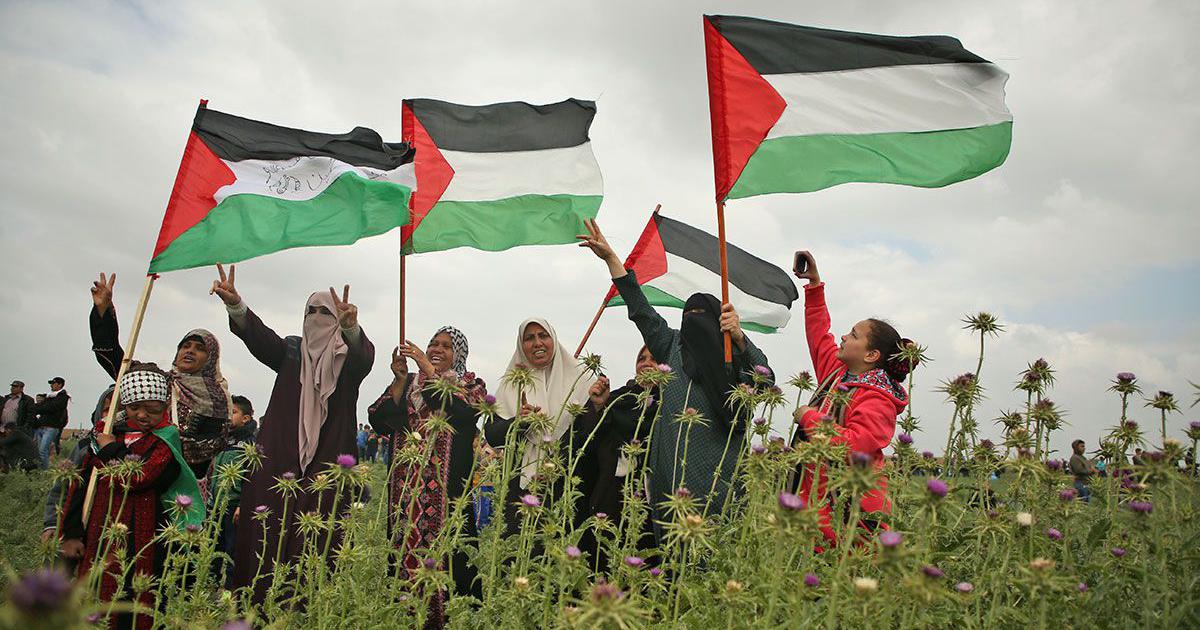Trigger warning: Mention of gender-based violence, killings and use of graphic images
For decades, Israel, supported by some of the world’s most powerful nations and their militaries, has regularly attacked Palestinian women living in the Gaza Strip and the West Bank. The forced isolation of Palestine from the rest of the world has left its citizens homeless, without basic amenities like food, water, and medical facilities. Israel’s decade-long military occupation, its racism, and its human rights violations have been systematically omitted from mainstream media.
On October 7, 2023, after enduring decades of colonization, Palestinians mounted resistance by fighting against the Israeli occupation. They succeeded in breaking out of segregated ghettos, and freeing Palestinian hostages, many of whom were women, in exchange for Israeli soldiers. Palestinian bulldozers brought down sections of the Israeli wall that had isolated Gaza from the rest of the world.
In response, Israel has started dropping bombs on Gaza and imposed a “total,” siege, cutting off food, water, electricity and fuel supply, pushing 2 million Gazans to the brink of death. More than half of these Gazans under threat are children and women.
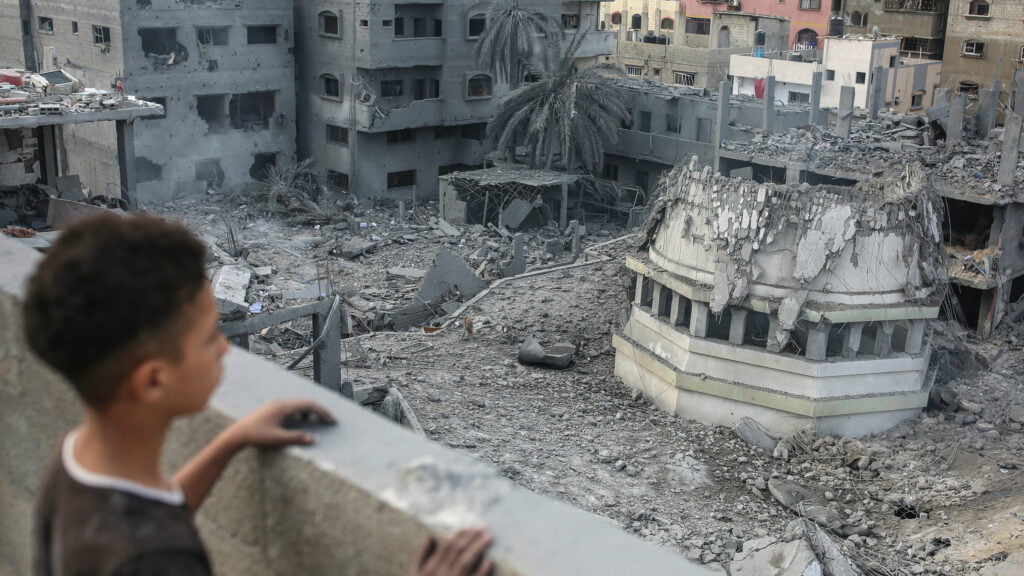
Throughout history, Palestinian women have suffered severe violations such as assaults, rapes and killings at the hands of the Israeli occupation but the violations meted on them are never discussed by the media or by feminist organisations.
Most feminist individuals and organisations ignore the consequences of colonisation, military occupation, racism, apartheid and war, in addition to patriarchy, which impacts the quality of life for women of the Third World. There is an ‘othering,’ of a specific category of women within the feminist discourse, which mainstream activists refuse to acknowledge. In this case, the category refers to Palestinian women who have been living under Israeli occupation ever since the ongoing ‘Nakba.’
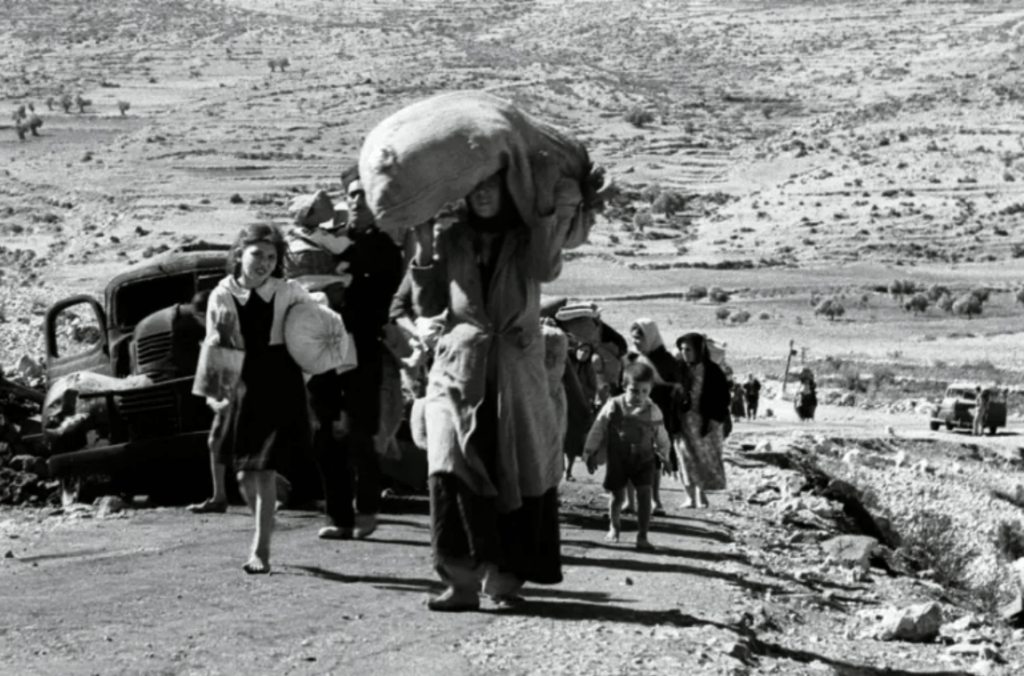
The Nakba, meaning “catastrophe,” in Arabic, refers to the mass displacement and dispossession of Palestinians by Zionists during the 1948 Arab-Israeli war, leading to the establishment of the illegal state of Israel. History has always been deeply political and personal, but unfortunately, the suffering of Palestinian women has never found its place in the pages of history.
Palestinian women reject Western feminism for its narrow definition as a fight against gender-based discrimination, which fails to address how Palestinian women are used as war weapons by Israeli settlers.
In her works, the renowned Black feminist, Bell Hooks, has argued that the feminist movement in the West is confined to upper-class white women, with lesser regard for the needs and struggles of poor and non-white women. Hooks asserts that Western feminism is undeniably a white, middle-class ideology primarily focused on male oppression of women. Third World women recognise the intersection between racism, imperialism, economic exploitation, and gender discrimination.
Therefore, Palestinian women reject Western feminism for its narrow definition as a fight against gender-based discrimination, which fails to address how Palestinian women are used as war weapons by Israeli settlers.
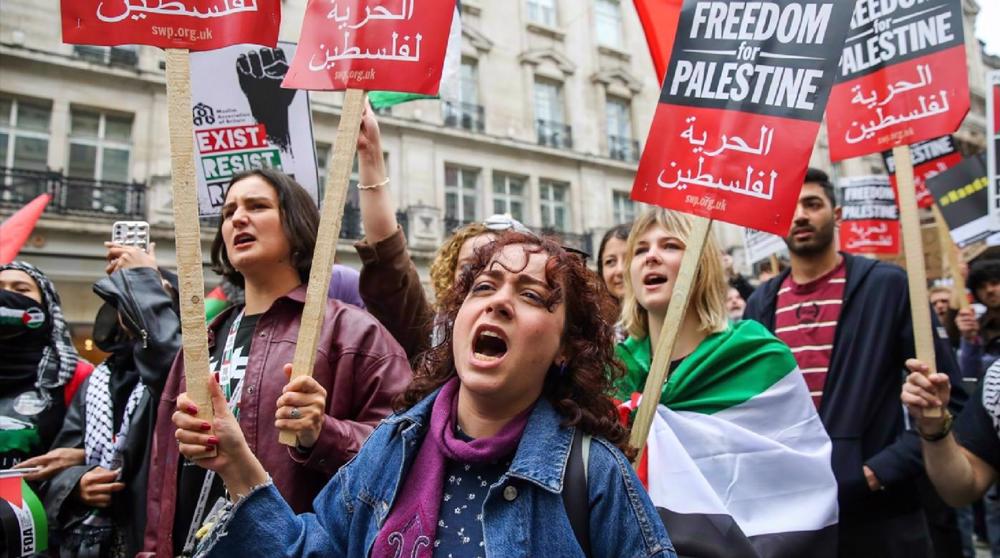
History has witnessed the use of violence and sexual assault against women as war weapons by the military, particularly in conflict zones and occupied territories. While there are rarely any official statistics, and most assaults go unreported, it cannot be denied that these women undergo sexual assaults or are at constant risk of them.
In India, assaults against Kashmiri and Northeastern women by the army and police are extremely common, yet they are overlooked because the state will never criminalise the violence sponsored by itself. Similarly, women in Palestine have a long history of being targets of physical and emotional violence by the settler Israeli army. The weaponisation of assaults by colonizers remains unreported, even by international organisations.
Confrontations between Israeli soldiers and Palestinian civilians are almost as old as Israel’s military presence in the occupied territories itself. Since the Nakba, women and minors have been easy targets of exploitation by the Israeli army. Ahed Tamimi, a Palestinian activist, was arrested over a viral video in 2018 when she was just 17 years old. In the video, Tamimi is seen slapping an Israeli army personnel stationed outside her home in the village of Nabi Saleh in the Israeli-occupied Gaza Strip. Israelis saw her as proof of the army’s restraint, thus, she was arrested on 12 charges.
However, for Palestinians, Ahed Tamimi is a national hero and a feminist icon. She has been protesting the theft of land and water by Israeli settlers and has even endured personal sacrifices, having lost an uncle and a cousin to the occupation. Ahed’s feminism reveals the ugly face of patriarchal settler-colonialism, vividly demonstrating that Israeli occupation is a violation of human rights.
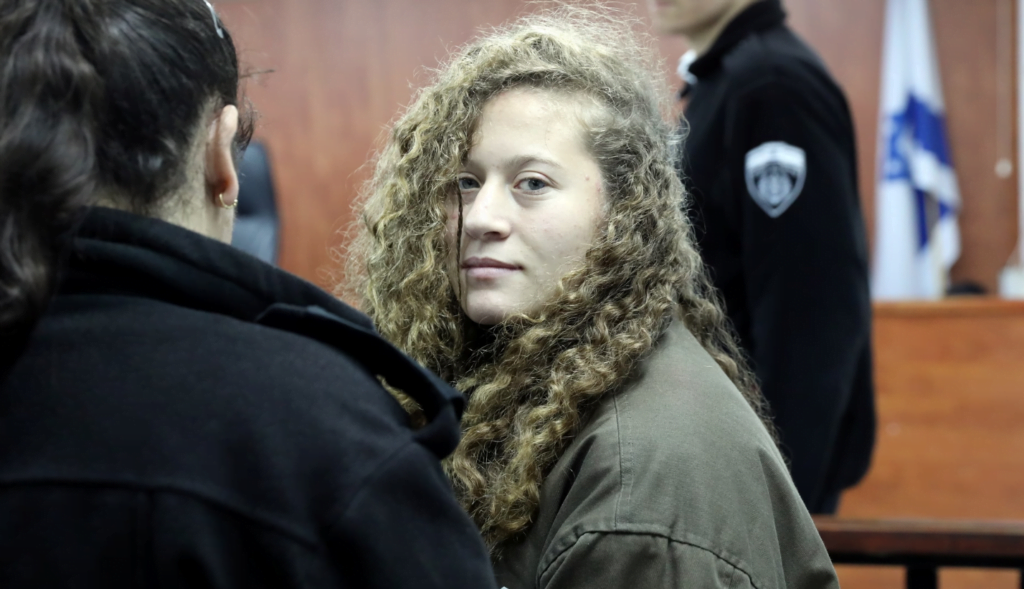
Ahed has been vocal about the oppression of Palestinian women living under occupation. In an interview, she states, “If what is happening (to Palestinian women) had happened in another country, they would look at it differently. If women were subjected to violence elsewhere, you would see them react extraordinarily. It’s like it’s okay for us to be subjected to violence and not them. It’s like we deserve what is happening to us.”
Tamimi goes on to say, “Palestinian women have the right not to be subjected to violence, and the whole world should know that when they see a Palestinian woman being beaten by an Israeli soldier or settler. As long as we are under occupation, the whole world is under occupation. As long as Palestinians are treated unfairly, the whole world is complicit in this unfairness.”
In another interview, Ahed draws attention to the plight of Palestinian women in Israeli prisons who are deprived of basic medical treatment. She also talks about her exploitation during her trial as a minor. Ahed is just one of the many, many women in this resistance against the Zionist army. Several other Palestinian women artists and activists have raised their voices against settler-sponsored violence, yet their voices remain unheard as international organisations refuse to give the mic to women of the third world.
Despite Palestinian women’s long history of standing up against injustices, there has always been a lack of support from Western feminist groups and human rights organisations. It is evident that when it comes to women living in the Third World, mainstream feminism has always turned a blind eye.
Despite Palestinian women’s long history of standing up against injustices, there has always been a lack of support from Western feminist groups and human rights organisations. It is evident that when it comes to women living in the Third World, mainstream feminism has always turned a blind eye.
Perhaps, activism has always been selective due to the constant ignorance of state-enforced violence. The state of Israel justifies its human rights violations by presenting these women as ‘threats,’ and later reduces them to objects, numbers and statistics. Surprisingly, these statistics, however false, do not even make it to mainstream news.
Over the years, videos depicting Palestinian women being assaulted by the Israeli army have frequently surfaced on the internet. There are disturbing photos showing children being rescued from rubble and Israeli soldiers engaging in acts of violence, including beatings and urination on Palestinians. Despite these compelling pieces of evidence, such incidents rarely make it to the headlines.
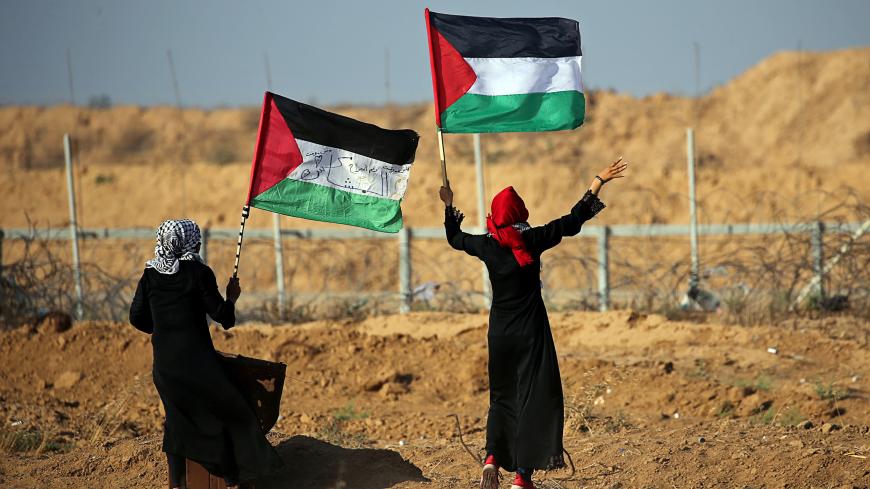
Territories occupied by Israel, such as the Gaza Strip and the West Bank, continue to be significantly underreported by Western media. Palestinian journalists who report against the occupation often face imprisonment or worse. The news that reaches the world is often manipulated by the occupying forces, portraying Israel as the victim rather than the oppressor.
Lately, a lot of disinformation is making rounds on social media about the current situation. Most of the news pieces laden with disinformation were revealed to be inaccurate, a deliberate attempt to depict Palestinians as oppressors and further dehumanise them. Even mainstream Indian media and some seasoned Indian journalists were spreading disinformation later proven to be false.
It is evident that when the occupying forces control the media and enjoy Western support, they can conveniently exploit women and children as tools of war to spread propaganda. Violence against Palestinian women, despite being documented in video clips and photos, remains unreported and unseen in mainstream media. However, when an Israeli woman is involved, even if the news is false, it manages to make headlines, including those of outlets like the BBC.
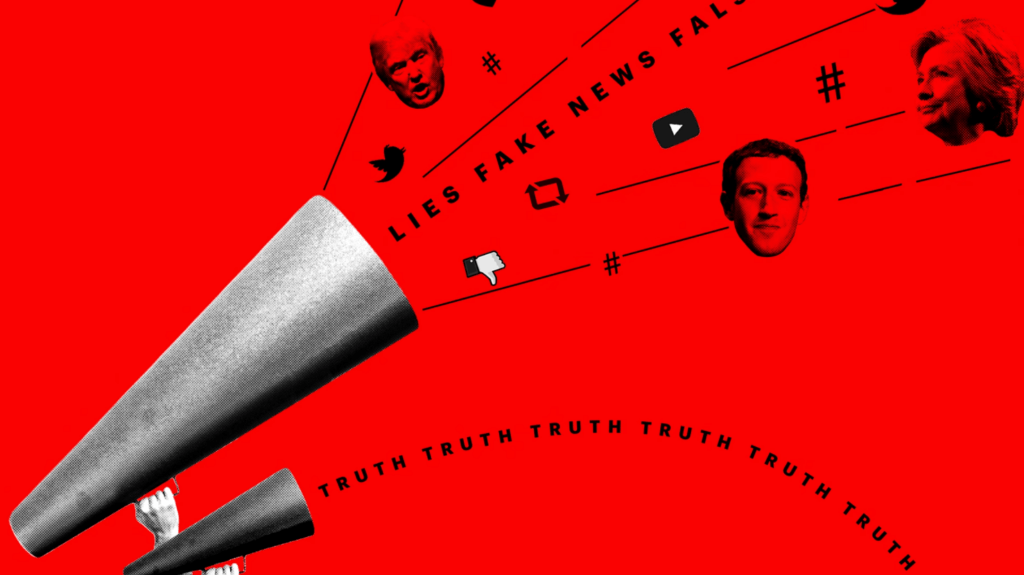
Gender-based violence can only be understood within cultural and historical contexts. Patriarchy and the subordination of women cannot be explained simply as a universal desire of men to dominate women. Palestinian women have to suffer multiple layers of oppression– as women, as non-whites, and especially for their race- Palestinians.
To include Palestinian women in the feminist struggle, we need to acknowledge the historical and cultural forms of patriarchy. Palestinian women who lived in a traditional environment during the pre-Nakba era were governed by patriarchal structures and ideologies. They would not have been able to enter the male public sphere if it had not been for the national struggle. It was a national necessity that formalised and legalised women’s involvement in public life.
Now that Palestinian women are at the forefront of their resistance against the Israeli occupation, they deserve to be included in our conversations surrounding feminism and social justice. Feminism which is not intersectional cannot benefit all women and the sooner we accept it, the sooner we can include Palestinian and Kashmiri women in our fight towards equality. Feminism which refuses to give space to women living under occupation, is in fact, not feminism at all.
Sources:
- United Nations, The Question of Palestine: About the Nakba
- Outlook India, Bell Hooks: A Radical, Black Feminist Whose Ideology Created Far Reaching Impact, 17 December 2021.
- The Atlantic, A Symbol of the Palestinian Resistance for the Internet Age, 5 January 2018
- Kuttab, Eileen S. “PALESTINIAN WOMEN IN THE ‘INTIFADA’: FIGHTING ON TWO FRONTS.” Arab Studies Quarterly, vol. 15, no. 2, 1993, pp. 69–85. JSTOR
- Sharoni, Simona. “Gender in Conflict: The Palestinian-Israeli Conflict through Feminist Lenses.” Signs, vol. 24, no. 2, 1999, pp. 487–99. JSTOR
- Rought-Brooks, Hannah, et al. “Palestinian Women: Caught in the CrossFire Between Occupation and Patriarchy.” Feminist Formations, vol. 22, no. 3, 2010, pp. 124–45. JSTOR
